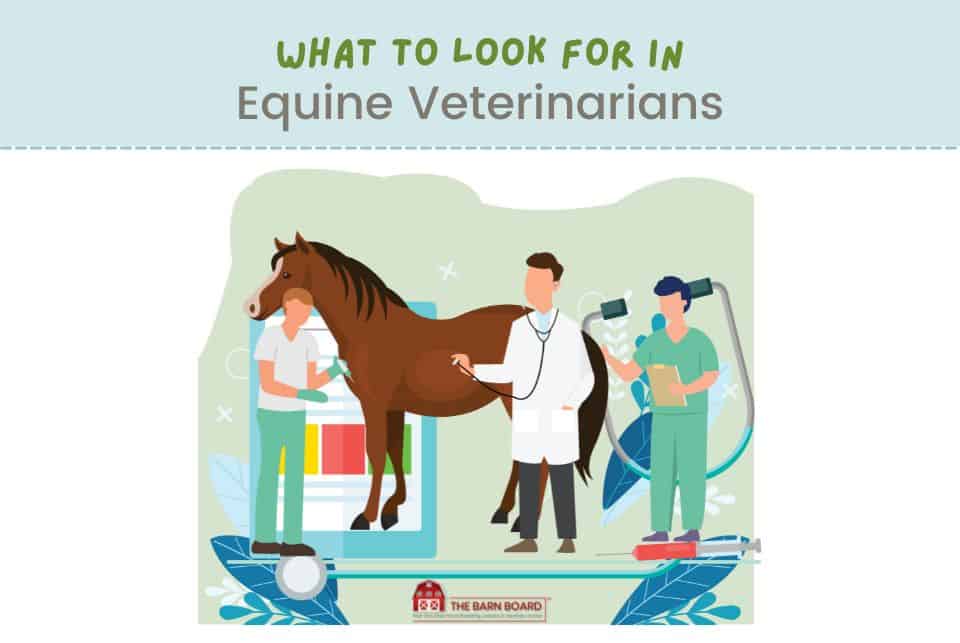Horses are not just pets. They need specialized care. Besides, horses are expensive animals. So you have to be very careful when choosing whom to trust over its health.
When selecting a vet for your horse, you have to know that not every veterinarian can treat a horse.
You can’t expect your new horse to be treated by the same vet who treats your vet dog. Just like doctors, veterinarians also have to study in vet school and graduate first. After that, they either practice treating small animals like dogs, cats, hamsters or large animals like cattle, horses, goats. This is the scenario for most vets, but some vets treat both small and large animals, but that is rare.
Most equine vets provide a mobile service which means they come to you and your horse. Whenever there is a health concern, they will visit your horse either in the stable or field. So it’s convenient for both you and the vet if you go with a veterinarian close by. Especially in the case of an emergency, having the veterinarian in a nearby location will come handy. The vet “call fee” per visit would be less expensive.
Ask your friends who own horses who their vet is. Ask your horse’s feed supplier and those who come to buy feed from the shop if they know a good veterinarian. Ask how the vet treats the animals and see what kind of a reputation he/she has built among his/her clients. This way, you will be able to make a list of skilled equine veterinarians with a good reputation (and omit those who have a bad reputation).
Veterinary care is expensive – but, like any business, some are less expensive than others. Also, like other businesses that upsell you on other services, some vet clinics do the same. If you like that, then go with that. If not, look for veterinarians who only treat what needs fixing.
Rather than choosing a vet just based on their experience and reputation, feel free to talk with them. Discuss the services they are willing to provide and the methods they will be using. Also, talk about the payments for different services and treatments. See whether they match your budget and/or provide payment installments.
Nowadays, most veterinary practices have one or two senior vets and few junior vets. The senior vets will usually take care of serious health issues like laminitis, while the junior vets will assist. However, the minor cases and routine treatments will be done by the junior vets.
Then, there’s the vet’s scheduling availability. Some vets have reputation of being routinely late all of the time. Is that okay with you? Ask about it.
Also, let the vet know about your requirements. How much time you can spend on the horse, who your horse’s caretaker (barn) is, what responsibilities you and the caretaker will be having, and even about your work schedule away from the stable. You can also let the vet know how you would like the treatment plans to be; either you want to know all the details about the treatment before performing or how much details you wish to know. Some vets will be ideal for your situation, and some won’t. So take your time and decide who is best for you and your horse.
Pay a visit to the veterinary office and see the state of the place with your eyes. Ask them what equipment they use in the treatments. See if the equipment is up to date. You may sometimes have to board the horse over there.


